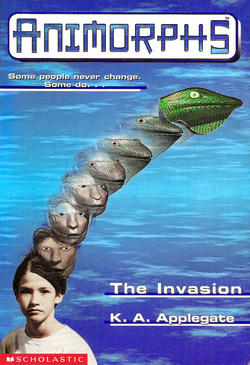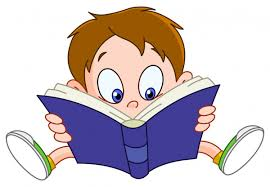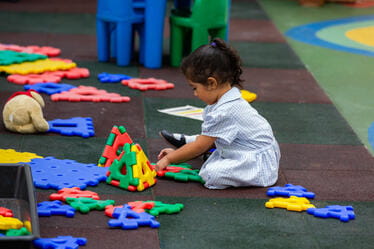Engaging Children in Independent Home Reading
Although I always was a child who was quite confident with my English learning, finding the motivation to sit down, open a book and spend time really getting into a story was difficult for me - and still can be. Now, this may not be exactly what you want to hear from the English Coordinator of your child’s school, but bear with me; there is a point!
Although I always was a child who was quite confident with my English learning, finding the motivation to sit down, open a book and spend time really getting into a story was difficult for me - and still can be. Now, this may not be exactly what you want to hear from the English Coordinator of your child’s school, but bear with me; there is a point!
I always loved hearing stories and had a great imagination from all the wonderful books my parents, grandparents and teachers had read to me throughout my childhood. However, when reading independently nothing really stuck, to the frustration of my mum and dad. They would buy me every type of book possible (fact books, spooky stories, funny poetry books, comics, football magazines) in an attempt to spark my interest in independent reading.
Just to divert for a moment, some people may question: “Is independent reading really that important for children anyway?” Well, research has firmly established the correlation between time spent reading and reading achievement (Allington, 2014; Cunningham & Stanovich, 1998; Krashen, 2004 and 2011; Petscher, 2009). Independent reading leads to an increased volume of reading, a broader vocabulary, better sustained mental effort necessary to understand more complex texts, even a better understanding of current affairs and global events - I could go on, but the message is basically this: the more one reads independently, the better at reading they become. Therefore, it is essential.

Anyway, let’s return to the mid/late nineties. Around about the age of 9, my mum bought me the first book in a series called Animorphs. This is basically about a group of young teenagers who happen to stumble across a dying alien. He then gives them powers to turn into animals, in order to save the world from another group of aliens, who happen to be parasitic and look like normal people - cool, right? I remember clearly a big argument that erupted the moment my mum told me to turn off the television, find a comfortable place and spend at least fifteen uninterrupted minutes reading. Reluctantly and probably sulking quite a bit, I lay on the carpet behind one of the sofas and read.
Within two pages, I was absolutely hooked. I could hardly put the book down and I believe I finished it in 3 sittings. Following this, I continued to buy Animorphs books well into my teenage years (over 50 books!), eventually having to hide these when my “too-cool-for-school” friends would come round.
Even though I knew it was still hard for me to be completely captured by a book when reading independently, I did now know that it was possible and even better, if it did capture me, I would become obsessed with the story. The next example after that which immediately comes to mind is when my Year 6 teacher read the class the first Harry Potter book. I became fixated on finding out the rest of the story before the others in my class and quickly bought the second and third book to read after finishing. Fast forward seven years, the result was an eighteen-year-old young man choosing not to go to a party, while on holiday with his friends in the mediterranean, so that he could finish the final Harry Potter book. To give an adult example, reading stories by George Orwell, Scott Fitzgerald and Ernest Hemingway about their adventures in Europe, while travelling across there by train, bought the journey even more alive and I was able to make striking comparisons to the places I had visited.

Right, enough about me - here is what I am trying to get at: just because your child can be reluctant to read independently, it does not mean that this will always be the case. Maybe they haven’t found their type of text or their genre or even the right environment that gives them the time, space and comfort to really dive into a book. It could even be that they prefer to read on kindle or an iPad than a paper book (modern times, hey?), or vice versa!
During my 8 years of teaching, I have always had a hoard of concerned parents, who come to me worrying that their child doesn’t read enough at home. They lament over the fights and the arguments and worry that maybe reading is just not for them. I don’t believe that this is the case for any child; reading is for everyone! Now, am I saying force your child to read daily even if it causes big arguments at home? No. This would be counterproductive and we do not want children to associate reading with a negative experience. Therefore, here are my eight top tips for promoting independent reading and getting your children into what I call “the habit of reading”:
-
Have a consistent routine: set aside a time every day (or most days) which is allocated to independent reading. This could literally be for 5 minutes at first then can be built up.
-
Model independent reading habits: why not have the whole family (if logistically possible) stop everything and read at the same time as your child? This sets a great example of the importance of reading.
-
Create a relaxing comfortable and quiet reading environment: you want them to feel at ease in the space so that they can really concentrate on the book and not get distracted.

-
Mix it up 1: they do not always need to read independently, especially the younger children who struggle with this. Read with mum, with dad, with gran, brother, sister, Aunt Bess, the toys, Max the dog. I joke slightly on these last points but it actually can be a fun game for children, especially if they are pretending to be the teacher! Let them practise reading out loud as well as in their head.
-
Mix it 2: allow children to have the choice to read a range of different text types/genres on a range of mediums: Newspapers, comics, magazines, online articles, short stories, poems, on the computer, on the ipad. All of these have values and may work in different ways and at different times for your child. Write them notes and letters to read, play board games or video games that involve reading, watch films in other languages that require subtitles - all these could work and be that one thing that finally engages them.
-
Talk to your child: ask them what kind of texts might engage them. Ask them what they do and don’t like about reading. Share your own experiences.
-
Don’t be afraid to give up on a book: now, take this one with a pinch of salt, as I know children who will change books every 5 seconds. If you’re sure your child has tried the book, but is really not enjoying it, there is no shame of saying, “This isn’t my kind thing. Let’s try something else”.
-
Don’t give up: just because they are not into independent reading yet, don’t label them as such. Keep trying different strategies to engage your child and speak to your teacher for ideas on how you could do this in a more personalised manner.
I want to end by saying that I truly believe that taking the time and having the perseverance and resilience to get your child in the habit of independent reading is one of the most worthwhile things you can do for them. Time and time again, improved reading attainment points to better life chances, increased opportunities and even better physical and mental health. Therefore, I will leave you on this last, albeit slightly overused, quote from the legendary Dr Suess: The more you read, the more things you will know. The more that you learn, the more places you’ll go.









